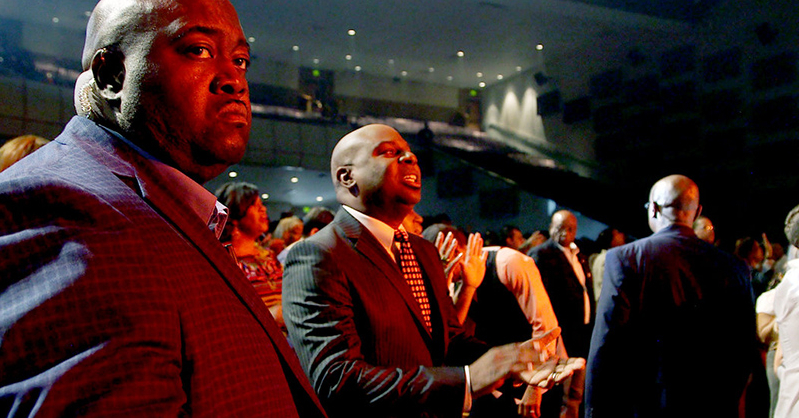
Churches across the United States are reviewing security measures during Sunday services in light of the mass shooting in the South Carolina city of Charleston last month, which left nine people in a historically black church dead. They are also trying to figure out how to be welcoming to everyone who visits.
According to Axel Gerdau of the New York Times, the Potter's House of Denver uses armed guards, security patrols and surveillance cameras. The leaders of that church insisted that military-style protocols are necessary even though most of their security efforts are hidden.
"We now live in an America where you must be vigilant," senior pastor Rev. E. Christopher Hill said.
Gerdau reported that both clergy members and the faithful, particularly those in black churches, have "heightened anxiety" after last month's massacre during a Bible study at Emanuel African Methodist Episcopal Church in Charleston. The events reminded Hill about the importance of having security measures in houses of worship.
"We had to be proactive," Hill said, adding that he encouraged congregations across the country to take a serious look at security.
Hill pointed out to Gerdau various violent events that gathered worldwide attention, including the 1999 Columbine High School shooting, the 2007 New Life Church shooting in Colorado Springs, and the 2012 Aurora movie theater shooting, which happened less than five miles from the Potter's House church.
"You are not safe on a plane," Hill said. "You are not safe in an elementary school. You are not safe in a high school. You are not safe in a movie theater. Guess what? You are not safe in a church."
Mike Christen of Columbia Daily Herald reported that churches across South Carolina are assessing security precautions for their congregations. One of them included God 1st Church in Columbia, which is headed by Pastor Terrance Blakesleay.
"We need to address what we are doing Monday through Saturday as a church and as a people," Blakesleay said.
Blakesleay added that churches have to look out for one another.
"We are bound together," Blakesleay said. "I'm keeping an eye not only on my church, but the church across the street, the church around the road."
However, the Columbia pastor noted that securing the church itself from outsiders can only go so far.
"As far as barricading ourselves in, I don't want to lock anybody out of the church," Blakesleay said. "I just don't want to run the risk of doing that."
Rev. Dwight Lee Wolter, the pastor of the Congregational Church of Patchogue in Long Island, N.Y., warned that churches should not be "overly alarmed" while tackling security issues. He made his remarks in an editorial published by Patheos.
"Fear is understandable. Precaution is necessary," Wolter wrote. "What is not understandable or necessary is a circling of the church wagons to protect 'us' against 'them.'"
Wolter contended that "fear has become rampant" in churches across the U.S. He noted that churches should take a balanced approach to security and being open to everyone at the same time.
"Jesus lived in frightening, uncertain times as well," Wolter wrote. "But in the name of security we do not need to secure the church against the very people we are called to serve. In the rush to be secure, we do not need to become insular."
Wolter added that "in our desire to protect, we should be cautious not to turn-away the wayfarers and sojourners that God would have us welcome."
Blakesleay expressed similar sentiments, emphasizing that the community as a whole must remain unified.
"Once individuals know that you are together and you are doing the right thing regardless of race, color, creed or denomination, that fear or attempt to do something wrong is lessened," Blakesleay said.






